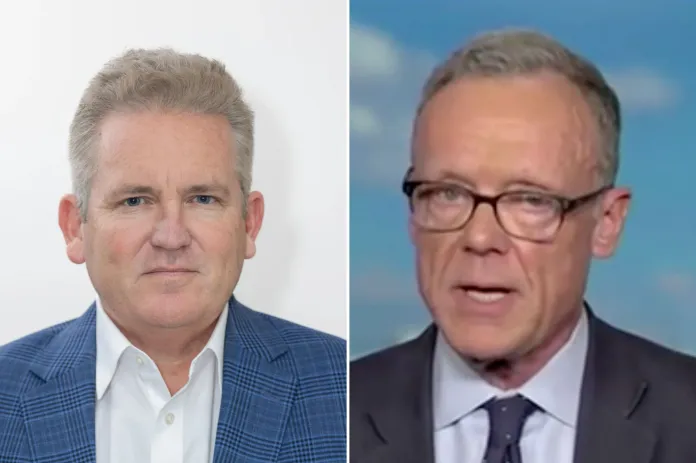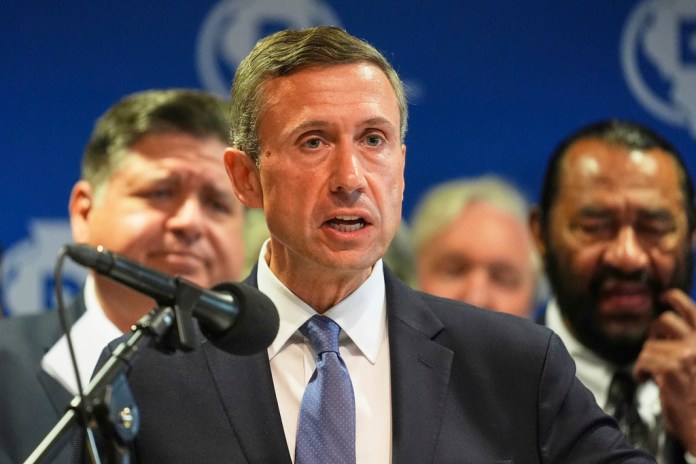The ‘Ferguson effect’ effect – Washington Examiner
The article discusses the controversial claim made by Ryan Girdusky during a CNN panel, where he stated that there were over 15,000 additional deaths of black males in the U.S. following the riots sparked by George Floyd’s killing. This assertion is tied to the concept known as the ”Ferguson effect,” which suggests that heightened anti-police sentiment leads to police disengagement from proactive law enforcement, exacerbating crime rates and disproportionately affecting young black men.
The piece highlights varying opinions on the Ferguson effect, with some academic studies arguing it is a real phenomenon while others describe it as illusionary or stemming from mismanagement within police departments. It emphasizes the ongoing debate about crime in the post-2020 landscape but criticizes CNN as an unsuitable platform for such discussions, noting the media’s tendency to silence viewpoints that diverge from the accepted narrative.
During the panel, Girdusky attempted to explain his viewpoint, linking increased crime rates to police hesitation in their duties post-Floyd protests, but was interrupted by CNN host Abby Phillip, who accused him of making unfounded connections. The article critiques the environment of liberal media, suggesting an intolerance for dissenting opinions and prioritizing a singular narrative over open discourse.
The ‘Ferguson effect’ effect
“The post-George Floyd riots resulted in an excess of over 15,000 black male deaths in this country.”
That was Ryan Girdusky’s claim on a CNN panel in mid-October. It is a disputed claim but one grounded in theory and research.
Girdusky cited a line of research finding that police disengage when anti-police sentiment flares up and that this disengagement exacerbates lawlessness. One obvious consequence is more homicide, which disproportionately affects young black men.
The thesis is called the “Ferguson effect.” Former President Barack Obama’s FBI Director James Comey bought this theory, but the Obama White House did not.
Many academic studies have examined the Ferguson effect — some saying it was illusionary, and some saying it was real. Some said it was mostly a matter of lower police engagement in the community, and a study published in the Journal of Criminal Justice concluded the Ferguson effect was mostly downstream from unsupportive management.
If you’re talking about crime since 2020, this is a great debate topic. But CNN is not the place to debate such matters.
The zeitgeist of major media these days, particularly CNN, was expressed concisely a few years back by Obama, who helped create that zeitgeist: “We know what works,” he said conclusively. “We know what we have to do. We’ve just got to put aside the stale and outmoded debates.”
The media variant of this total certainty is: “We know what is true. We’ve just got to silence what we know to be false.”
Liberal journalists are harassed daily by their liberal followers for “letting right-wing lies go unchecked.” Even airing a speech by Sen. J.D. Vance (R-OH) without instant, denunciatory fact checks will earn a CNN anchor a mob of angry liberal followers.
Girdusky’s CNN interlocutors weren’t about to let their base down.
“You gotta explain. … You really are messin’ me up,” liberal pundit Bakari Sellers objected when Girdusky cited the Ferguson effect, leaning in with his curious, chin-on-the-hand pose.
So Girdusky did explain, “After the George Floyd riots, policemen, in fear of their jobs … pulled back from their jobs, resulting in an increased level of crime —”
This was too much for CNN host Abby Phillip, who cut him off. You see, nobody on the panel, apparently, was familiar with this thesis.
“Ryan, I gotta stop you there,” Phillip interjected, deploying the incantation of the misinformation police — “I gotta stop you.” She did have to stop him because he was advancing an opinion that had not been preapproved on this opinion show.
“You’re literally making a connection out of your own conjecture. You cannot just do that.” The rest of the panel blew up into inchoate objections, charging Girdusky with “dishonesty” and scolding him. “I have no idea what you’re talking about,” one panelist said as if that indicted Girdusky rather than her.
Girdusky cited a widely discussed and deeply researched, even if hotly disputed, idea, but it conveyed a belief that neither Phillip, Sellers, nor the other guests shared.
It doesn’t matter that Phillip wrote about the Ferguson effect in 2015 — that was in the old days, before the media appointed themselves misinformation police.
The old virtues of journalism have no place in this undertaking. Curiosity? No way. Ideas that aren’t pre-vetted must be quashed. Hearing from all sides? Not when one side is a threat to democracy.
Call it the “Ferguson effect effect”: An idea formerly accepted, or at least entertained, becomes verboten when it becomes politically inconvenient.
" Conservative News Daily does not always share or support the views and opinions expressed here; they are just those of the writer."




